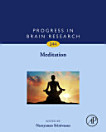Attention and Vision in Language Processing
ກ່ຽວກັບປຶ້ມ e-book ນີ້
Language scientists have traditionally considered language in isolation from other cognitive and perceptual systems such as attention, vision and memory. In recent years, however, it has become increasingly clear that language comprehension must be studied within interaction contexts. The study of multimodal interactions and attentional processes during language processing has thus become an important theoretical focus that guides many research programs in psycholinguistics and related fields.
ກ່ຽວກັບຜູ້ຂຽນ
Ramesh Kumar Mishra has a Ph.D. from the University of Delhi and is currently associate professor and Head at the Center for Neural and Cognitive Sciences, University of Hyderabad . He earlier taught at the Centre of Behavioural and Cognitive Sciences, University of Allahabad, India. Dr. Mishra has published widely in the area of psycholinguistics and cognitive science of language and has edited books in the area of language and cognition. His current research focuses on how language and other important cognitive processes like attention and vision interact during cognitive processing. Dr. Ramesh Mishra is on the editorial board of journals like Journal of Theoretical and Artifi cial Intelligence, Frontiers in Cognition. He also co-edits the International Journal of Brain, Culture and Cognition.
Narayanan Srinivasan is currently Professor and Head at the Centre of Behavioural and Cognitive Sciences, University of Allahabad, India. Professor Srinivasan was a visiting scientist at the Riken Brain Science Institute (2006-2012). He has a master's degree in electrical engineering from the Indian Institute of Science and subsequently earned his PhD in psychology from the University of Georgia, USA in 1996. He has been working at the Centre for more than a decade. His primary research interests are attention, perception, emotions and consciousness. He employs multiple methodologies to study cognitive processes. Professor Srinivasan has edited six books and a special issue and has published more than a hundred journal articles, book chapters and conference proceedings papers. He was the editor-in-chief of the International Journal of Mind, Brain, and Cognition and the associate editor of the journals, Frontiers in Cognitive Science, Cognitive Processing, Neuroscience of Consciousness, Royal Society Open Science and Psychological Studies.
Falk Huettig is a Senior Investigator at the Max Planck Institute for Psycholinguistics in Nijmegen, Netherlands and a Visiting Professor at the University of Hyderabad, India. He received a BSc and a MSc from the University of Edinburgh and a PhD in psychology from the University of York, UK. His main research interest is multimodal cognition. Other main interests include the effect of cultural inventions such as reading on general cognition in children, illiterate adults, and individuals with reading impairments; and predictive language processing. Falk Huettig is an editorial board member of the Journal of Memory and Language and editor-in-chief of Brain, Cognition and Culture.






